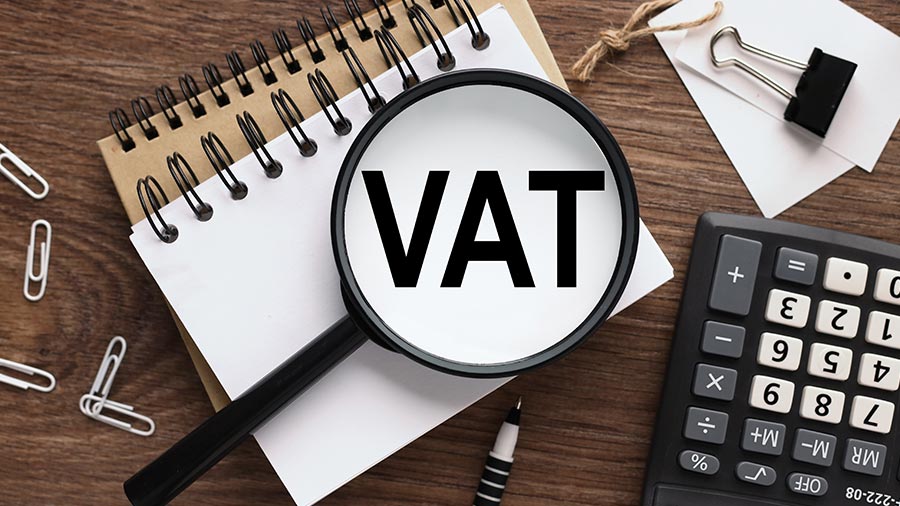Navigating VAT Services In The UAE | A Comprehensive Guide

The United Arab Emirates (UAE) has been at the forefront of economic development and diversification in the Middle East. One significant aspect of its financial landscape is the implementation of Value-Added Tax (VAT) services, which has brought about substantial changes in the business environment. Understanding VAT in the UAE is crucial for businesses and individuals alike. Here’s an in-depth guide to navigating VAT services in the UAE.
Introduction to VAT in the UAE
Value-Added Tax (VAT) was introduced in the UAE on January 1, 2018, marking a significant shift in its tax regime. The implementation of VAT services in UAE has impacted businesses operating within the country, requiring them to comply with specific regulations, processes, and reporting standards.
VAT Registration Process
Businesses exceeding the mandatory threshold of AED 375,000 are required to register for VAT. Voluntary registration is also permitted for businesses below the threshold, offering benefits such as reclaiming VAT on eligible expenses. Understanding the registration process, documentation, and timelines is crucial to ensure compliance.
VAT Rates and Exemptions
The standard VAT rate in the UAE is 5%. However, certain goods and services are exempted from VAT, including healthcare, education, and local transport. Navigating these exemptions and understanding the implications for various industries is essential for businesses to accurately apply VAT.
VAT Compliance and Filing
Compliance with VAT regulations involves maintaining proper records, issuing tax invoices, and filing VAT returns within the stipulated timeframes. Failing to comply with these requirements can lead to penalties and fines. Utilizing technology and specialized software can streamline the compliance process for businesses.
VAT Impact on Different Sectors
Various sectors in the UAE experience distinct effects due to VAT implementation. Industries such as real estate, hospitality, and retail have witnessed specific changes in consumer behavior, pricing strategies, and operational dynamics. Understanding sector-specific implications is crucial for businesses to adapt effectively.
VAT Refunds for Tourists
The UAE offers a VAT refund scheme for eligible tourists, providing an incentive for shopping and tourism. Understanding the eligibility criteria, documentation, and processes involved in claiming VAT refunds is essential for visitors to benefit from this scheme.
VAT Audits and Penalties
VAT audits ensure compliance and accuracy in tax reporting. Non-compliance or errors in VAT filings can result in penalties, fines, or even suspension of a business’s tax registration. Understanding the audit process and maintaining meticulous records is vital to mitigate risks.
Impact of VAT Amendments and Updates
The UAE continuously revises its VAT regulations to adapt to changing economic conditions. Staying updated with amendments, circulars, and announcements from the Federal Tax Authority (FTA) is crucial for businesses to remain compliant and avoid any unforeseen issues.
Understanding VAT in the UAE
Value Added Tax is a consumption tax levied on goods and services at each stage of the supply chain. In the UAE, VAT was implemented on January 1, 2018, at a standard rate of 5%. It applies to most goods and services, with specific exemptions and zero-rated supplies.
Significance of VAT in the UAE
The introduction of VAT marked a significant shift in the UAE’s fiscal policy, aiming to diversify revenue sources and reduce dependency on oil revenues. It plays a pivotal role in supporting government initiatives focused on infrastructure development, healthcare, education, and other public services.
VAT Registration and Compliance
Mandatory VAT Registration
Businesses meeting specific criteria are required to register for VAT in the UAE. Entities with taxable supplies and imports exceeding the mandatory threshold must register for VAT within the stipulated timeframe.
Voluntary VAT Registration
Even if a business does not meet the mandatory registration threshold, it can opt for voluntary registration. Voluntary registration allows companies to reclaim input VAT on expenses, enhancing their competitiveness and enabling smoother financial operations.
VAT Compliance and Record-Keeping
Adhering to VAT compliance is crucial for businesses to avoid penalties and ensure seamless operations. This includes maintaining accurate records of transactions, filing VAT returns on time, and conducting regular audits to ensure compliance with VAT regulations.
VAT Implementation Challenges and Solutions
Transition Period Challenges
The initial implementation phase posed several challenges for businesses adapting to the new tax regime. Challenges included understanding VAT implications, adjusting accounting systems, and training staff to ensure compliance.
Solutions and Best Practices
Businesses navigated these challenges by investing in specialized VAT training, upgrading accounting systems, and seeking expert consultancy services. Adopting robust compliance measures and leveraging technology streamlined VAT processes, minimizing errors and ensuring accuracy in filings.
Optimizing VAT Services for Business Growth
VAT Planning and Strategy
Strategic VAT planning is essential for businesses to mitigate risks and maximize opportunities. Engaging tax advisors and consultants helps in devising effective tax strategies aligned with the organization’s objectives.
VAT Recovery and Optimization
Efficient VAT recovery mechanisms enable businesses to reclaim input VAT on eligible expenses. Implementing effective recovery procedures positively impacts cash flow and reduces the overall cost of operations.
Technology Integration for VAT Management
Leveraging technology solutions such as VAT compliance software and automation tools streamlines VAT processes, minimizes errors, and enhances efficiency in managing VAT-related tasks.
Future Outlook for VAT in the UAE
As the UAE economy evolves, VAT policies may undergo further changes or refinements. Businesses and individuals should anticipate and adapt to potential shifts in regulations and continue to prioritize compliance to ensure uninterrupted operations.
Navigating VAT services in the UAE requires a comprehensive understanding of regulations, compliance procedures, and potential impacts on various sectors. Staying informed, seeking expert guidance, and leveraging technology for seamless VAT management are vital for businesses and individuals alike. As the UAE continues its path of economic development, a thorough grasp of VAT services will remain integral for financial stability and growth.








